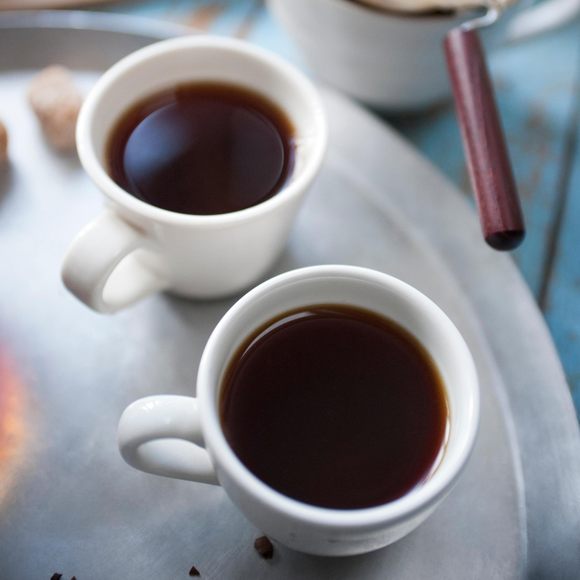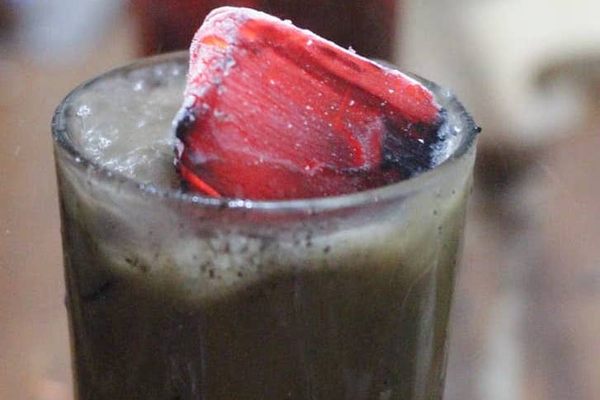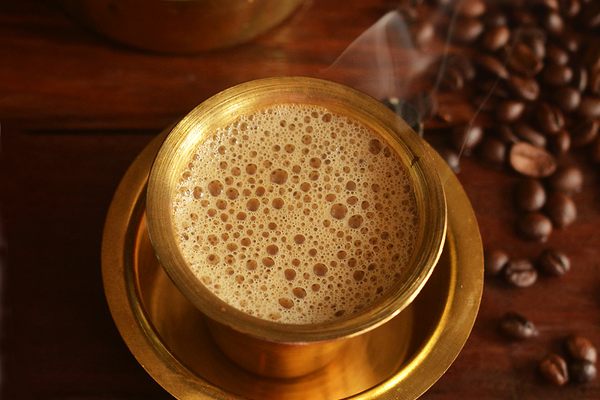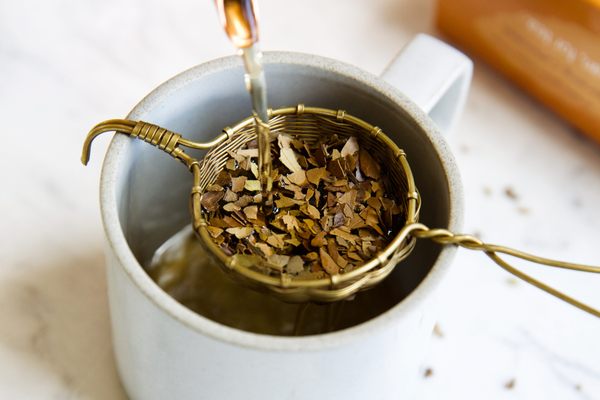Cheikh Ahmadou Bamba founded the Senegalese city of Touba in 1887. The Sufi spiritual leader also developed one of the country’s most beloved coffee drinks, which goes by the same name. Café Touba, as the story goes, was developed as an integral part of Sufi chanting. Sessions often lasted late into the night, and chanters remained awake and alert by sipping a combination of caffeine and spices with purported medicinal benefits.
What differentiates café Touba from other coffee is not the beans themselves, but the addition of an African spice and cloves. Though clove remains common, the spice, known as “grains of Selim” or djar in the Senegalese language of Wolof, is unfamiliar outside its native regions. Djar comes from the dried fruit of the Xylopia aethiopica plant, and it’s said to have a spicy, bitter, and almost smoky flavor, with a nutmeg aftertaste. The spice is meant to clear the throat, settle the stomach, and help create café Touba’s signature flavor, which one writer describes as “Turkish coffee-meets-cola.”
Today, Senegalese people drink café Touba all over the country. Along the streets, in markets, and even at religious gatherings, vendors sell the spiced coffee from kiosks called tangana. Vendors roast and grind Arabica or robusta coffee beans, along with djar pods and cloves. Then, they add the mixture to a filter and pour boiling water over top several times. They froth up the liquid by pouring it back and forth between two cups. For just a few cents a pop, customers down the deep, spicy energy drink—loaded with sugar, but no milk—all night long.
Written By
 rachelrummel
rachelrummel
Sources
- eatyourworld.com/destinations/africa/senegal/dakar/what_to_eat/cafe_touba
- www.africanews.com/2016/04/28/senegal-touba-coffee-touching-hearts-in-dakar//
- www.americanheirloomproject.com/food-stories/spicedcoffee
- www.tastingtable.com/drinks/national/cafe-touba-coffee-senegal
- laboratorioespresso.it/en/coffee-touba/
- www.bu.edu/africa/alp/index1/african-ajami-library-aal/forstudentsalpindex1african-ajami-library-aaltouba/
- ircpl.columbia.edu/2011/04/15/touba/
- books.google.com/books?id=SpmdDAAAQBAJ&pg=PT110&lpg=PT110&dq=djar+spice&source=bl&ots=cld3MwcdgV&sig=pe-yegjhuB8pM1SZu55o8NISrkM&hl=en&sa=X&ved=2ahUKEwiX1rzBjMjeAhUoUt8KHdlnCOYQ6AEwEXoECAcQAQ#v=onepage&q=djar%20spice&f=false
- books.google.com/books?id=yUKAAwAAQBAJ&pg=PT315&lpg=PT315&dq=Xylopia+aethiopica+touba&source=bl&ots=QpGRROoew1&sig=GWVHf1uVq5qNly6d22kZPOgQVJ0&hl=en&sa=X&ved=2ahUKEwi_--jblcjeAhUMSN8KHSYyD5E4FBDoATAAegQIAhAB#v=onepage&q=Xylopia%20aethiopica%20touba&f=false
- bunaa.de/en/senegal-2/
The Atlas Obscura Podcast is Back!
















